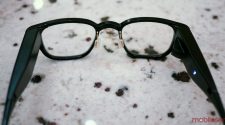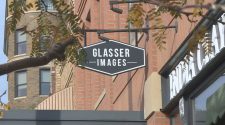Airports and railway operators worldwide are turning to contactless technology from vendors and startups to help them safely open back up and accept full volumes of visitors during the coronavirus pandemic.
Exhibit A: Eurostar, the high-speed rail operator in Europe, said on June 17 that it will adopt facial recognition technology as an alternative for passengers who want to check in and board without the physical hand-off of passports. It plans to roll out contactless boarding next year on its route between the UK and France, followed by the rest of its European network of routes.
Eurostar will scan a passenger’s face on arrival at a rail station to match it to a photo the passenger uploaded from a smartphone in advance of the trip. The company will use tech from iProov, a biometric authentication business.
It’s voluntary to take part, but some travelers may prefer to use the face-scanning to avoid interpersonal interactions for ticket checks and passport control.
The vendor claims the process checks that a user is a real person who is “authenticating” at a precise moment, rather than a photo, video, or mask that criminals might fake.
Touchless Tech at Airports
Airport adoption of touchless tech has sped up, as a frightened world craves keeping a safe distance between workers and travelers. But revenue shortfalls are making airport operators selective about what tech to prioritize.
While vendors built these touchless and automated technologies before the pandemic to increase speed and efficiency, airport demand for these tools is showing early signs of surging since the outbreak upended the travel sector.
Yet airports will have to pick and choose given a collapse in revenues. Airports worldwide will drop in year-over-year revenue of more than $97 billion this year, estimated trade body Airports Council International World.
Abu Dhabi Airports is introducing touchless elevator technology for 53 elevators at Abu Dhabi International Airport, helping to prevent cross-infection from interacting with elevator buttons. Meta Touch, a startup based at the UAE University Science and Innovation Park, invented the tech.
Abu Dhabi Airports is installing at 53 airports sensor-based keypad technology from Meta Touch. (Source: Abu Dhabi Airports)
At Seattle-Tacoma International Airport, all the airport restaurants are adopting Grab as a digital ordering service to cut down on face-to-face encounters. In April, Grab debuted a “virtual kiosk” that lets guests to scan a QR code or tap an NFC chip on their smartphone to order from their own device without the need to download Grab’s app. The airport is using this tech.

Grab’s “virtual kiosk” at Seattle-Tacoma International Ariport will let passengers order from their own device without needing to download an app. This is a photo illlustration. Source: Grab.
Airports must, of course, focus on tech that supports newly mandated requirements by authorities.
Word that Canada will require airline temperature checks of air passengers was news to the ears of makers of thermometers. Temperature checks will become mandatory for air passengers entering the country by the end of June and domestic travelers by the end of July. One company standing to benefit is Cantronics, a manufacturer already approved by the Canadian government for its fever screening technologies.
One problem with temperature checks is that today’s processes expose workers to a variety of passengers. Some airports are taking a triaged, or phased, approach. They hope to use thermal detectors pointed at crowds to identify passengers who seem to be hotter than the average. Then they’ll single out the hot passengers for secondary, individual temperature-checking.
The thermal scanning technology is still uncertain, though. London Heathrow Airport began thermal screening trials last month in the immigration hall of Terminal 2, but it’s waiting to know how accurate the machines are.
Another way to reduce face-to-face interactions is to replace workers with robots for initial screenings. South Korea Incheon International Airport intends to test later this year a robot that claims to tell if passengers are wearing masks and flag those who aren’t to authorities.
Weighing the Value of Touchless Tech
Tech companies hope to profit by selling software, sensors, and other tools. But some travel companies can’t afford significant expenditures right now. Some processes could slow down workflows while adding operational costs, presenting a threat to profits.
Many airports expect to ramp up automation during the coronavirus outbreak as employers seek to cut costs and boost productivity.
Britain’s Manchester Airport has begun to give passengers the chance to pre-book a 15-minute security slot to reach the departure lounge quicker via dedicated lanes. Tech vendors hope to offer reservation software to airports software to manage similar programs.
Hartsfield-Jackson Atlanta International Airport will begin in July to have its workers use a new app and software to track hygiene-related tasks by airport workers. The Kolo Hygiene app, made by Georgia-Pacific Professional, helps workers check that its public bathrooms are clean and soap dispensers are full, among other tasks.
Simpler fixes also can be effective, too. Dallas/Fort Worth International Airport, which is speeding up its refurbishing of public bathrooms with automatic faucets and soap dispensers. Las Vegas’s McCarran International Airport is installing vending machines from U.S.-based Prepango.
Dufry, the travel retailer, will begin rolling out this month vending machines offering personal protection equipment (PPE), such as face masks and hand sanitizer gel, to 27 North American airports under the Hudson brand name.
In a similar move, Dubai Airports has introduced two vending machines selling personal protective equipment at Dubai International Airport.
Some airports have offered services to wrap luggage in plastic for claimed extra security in-transit. Rolling out this month, one of the providers of bag wrapping services, TraWell — often shown under the brand name Safebag — now provides luggage sanitation, too. Safebag is using tech from Sanycar, a company that uses ultraviolet light to disinfect surfaces.
Other luggage-wrapping vendors attempt the same disinfection process with electrostatic fogging machines.
Photo Credit: Eurostar, a rail operator, will in 2021 roll out new facial recognition technology powered by the vendor iProov for passport control and ticket identification. IProov















